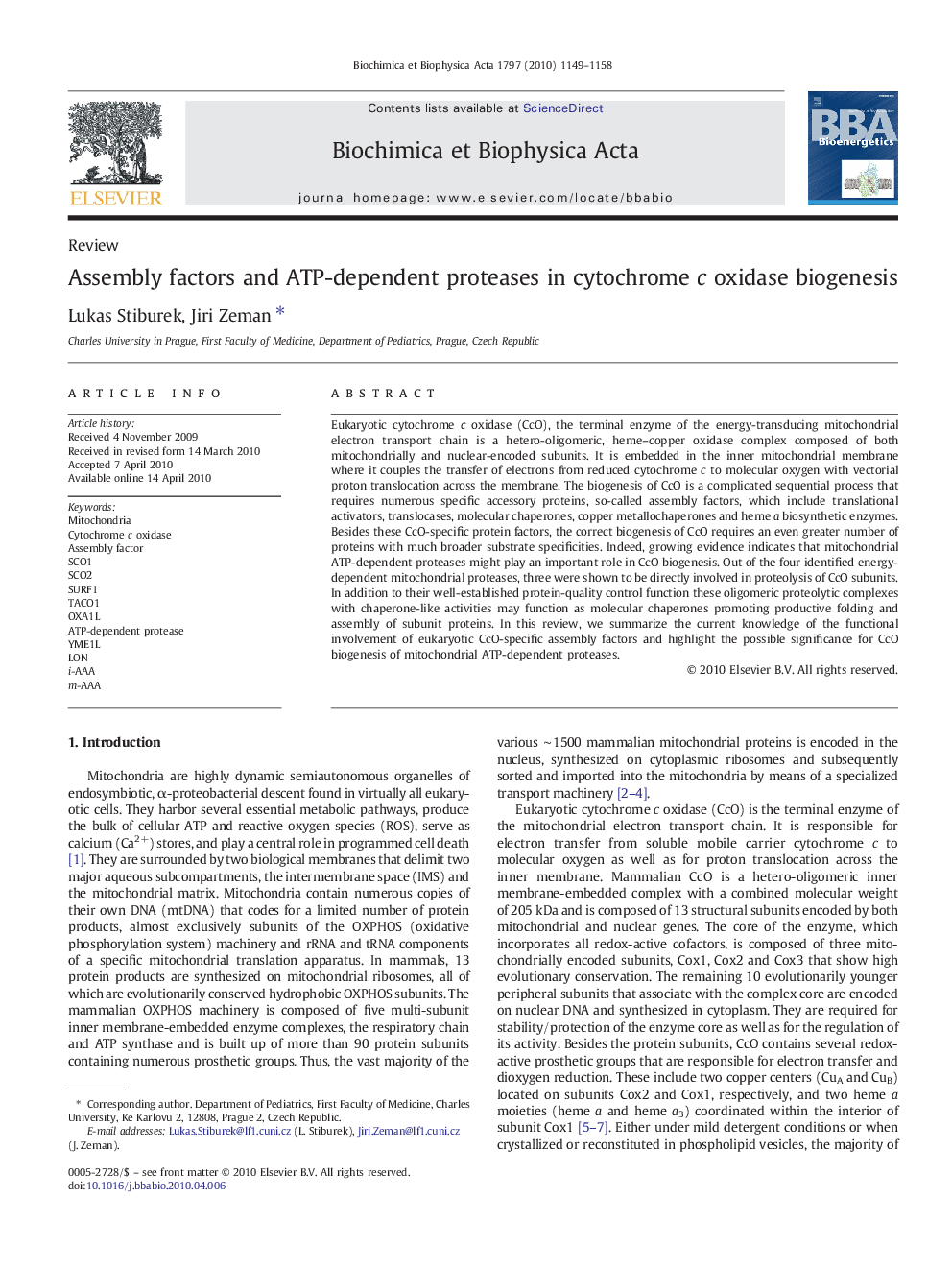| Article ID | Journal | Published Year | Pages | File Type |
|---|---|---|---|---|
| 8298983 | Biochimica et Biophysica Acta (BBA) - Bioenergetics | 2010 | 10 Pages |
Abstract
Eukaryotic cytochrome c oxidase (CcO), the terminal enzyme of the energy-transducing mitochondrial electron transport chain is a hetero-oligomeric, heme-copper oxidase complex composed of both mitochondrially and nuclear-encoded subunits. It is embedded in the inner mitochondrial membrane where it couples the transfer of electrons from reduced cytochrome c to molecular oxygen with vectorial proton translocation across the membrane. The biogenesis of CcO is a complicated sequential process that requires numerous specific accessory proteins, so-called assembly factors, which include translational activators, translocases, molecular chaperones, copper metallochaperones and heme a biosynthetic enzymes. Besides these CcO-specific protein factors, the correct biogenesis of CcO requires an even greater number of proteins with much broader substrate specificities. Indeed, growing evidence indicates that mitochondrial ATP-dependent proteases might play an important role in CcO biogenesis. Out of the four identified energy-dependent mitochondrial proteases, three were shown to be directly involved in proteolysis of CcO subunits. In addition to their well-established protein-quality control function these oligomeric proteolytic complexes with chaperone-like activities may function as molecular chaperones promoting productive folding and assembly of subunit proteins. In this review, we summarize the current knowledge of the functional involvement of eukaryotic CcO-specific assembly factors and highlight the possible significance for CcO biogenesis of mitochondrial ATP-dependent proteases.
Related Topics
Life Sciences
Agricultural and Biological Sciences
Plant Science
Authors
Lukas Stiburek, Jiri Zeman,
